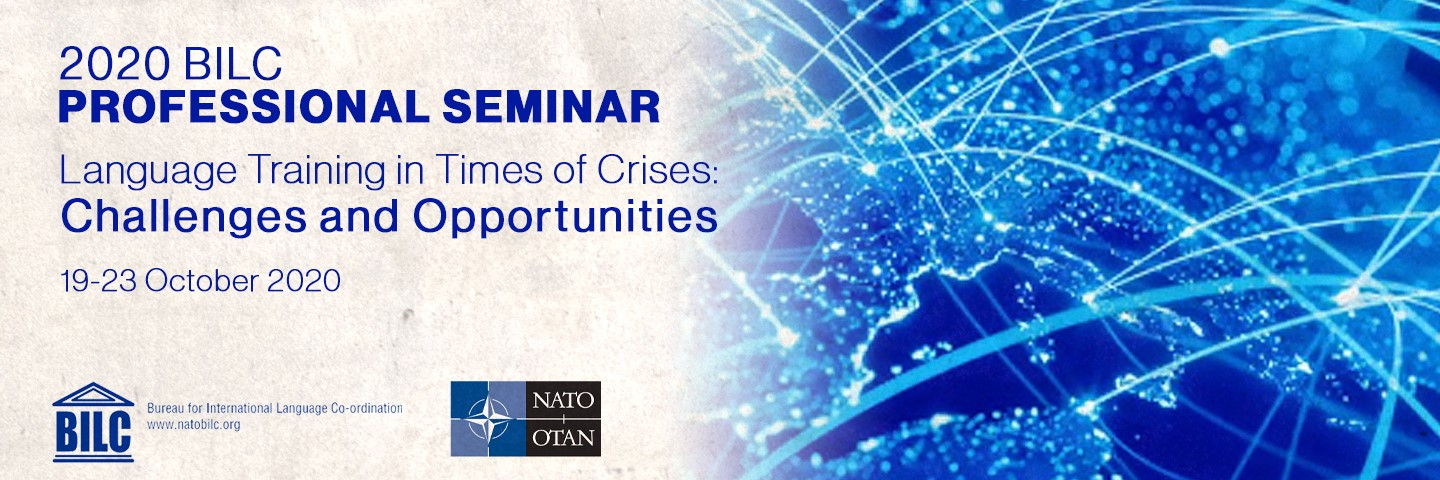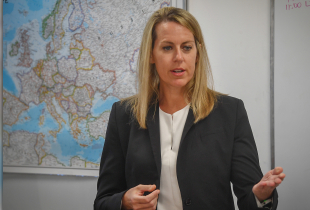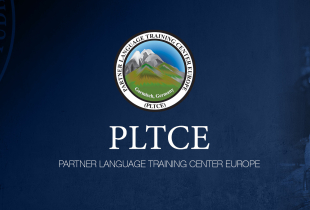
Language Teaching, Testing during the Pandemic Showcases Lessons Learned from Across the Globe
By Peggy Garza
Partner Language Training Center Europe
George C. Marshall European Center for Security Studies
GARMISCH-PARTENKIRCHEN, Germany (Nov. 2, 2020) – The very timely theme of the NATO Bureau for International Language Coordination Professional Seminar held Oct. 19 to 23 was “Language Training in Times of Crises: Challenges and Opportunities.”
More than 80 registered participants and dozens of observers from 32 different nations across 17 time zones took part in the virtual seminar hosted by the General Staff of the Portuguese Armed Forces and organized by the Partner Language Training Center Europe, George C. Marshall European Center for Security Studies.
Col. Luis Serôdio, head of the Resources Division, Portuguese General Staff of the Armed Forces, delivered the opening remarks.
“Just like the chosen theme for this seminar, we are definitely living in difficult times, but when there is a will, there is a way,” he said.
Serôdio explained that despite the pandemic, nations still have to respond to training requirements and prepare troops in the language skills they need to be interoperable.
He added, “I want to take this opportunity to show our appreciation to BILC, its Chair and Secretariat and PLTCE for all the support provided in the organization and preparation of this event, even under such challenging circumstances.”
The BILC Chair Branka Petek of Slovenia, introduced the seminar theme to the audience of language teaching and testing practitioners.
“The pandemic has forced nations to move their language training and testing online. The new teaching and learning environment brings numerous challenges,” Petek said. “Each individual institution has its own best practices and lessons learned. The BILC Professional Seminar offers a unique forum where representatives of different nations can share their experiences.”
In his keynote speech, Online Language Teaching and the Five Laws of Learning, the BILC senior advisor, Dr Ray Clifford of Brigham Young University, USA, noted that effective language teaching is an interactive, interpersonal process and that online teaching requires more teacher preparation time than classroom teaching.
The 18 presentations on the seminar theme were given by speakers from 16 different nations who discussed their points of view on the ideal class size, the balance of synchronous and asynchronous work, optimum on-screen time, dealing with the limitations and the affordances of technology and student and teacher motivation in a virtual world.
The enthusiasm of the BILC community for this seminar was evident. Even the wide range of time differences did not prevent language experts from as far away as Australia and Canada from contributing to the seminar.
Lt. Cmdr. Marta Gabriel, the Portuguese national representative to BILC and the host nation coordinator, described the positive impact of the seminar.
“Through presentations and panel discussions, this seminar promoted the sharing of knowledge, experiences and best practices in the area of language education and training, especially now when faced with the COVID-19 restrictions. The genuine spirit of sharing and cooperation demonstrated during the event underscores the efforts of the BILC community and the nations represented. The seminar truly lives up to BILC’s mission statement: To achieve levels of excellence where progress made by one is shared by all,” said Gabriel.
In the BILC Chair’s final remarks, Petek said, “I am truly impressed by the number of language experts who participated in the seminar. I want to thank the host nation, the presenters, the panel moderators, and others who helped behind the scenes with organizing this historic virtual event. While we missed out on the beautiful Portuguese sights, the pleasant weather and the wonderful food, we successfully achieved our objectives. We learned so much from each other – both the successes as well as the challenges.”
Serôdio summed up the Portuguese Military Authorities’ sentiments with these words, “We are grateful to the BILC community for their language standardization efforts which have resulted in greater interoperability across the Alliance. We are definitely proud to be part of the BILC community and are committed to this common effort.”

